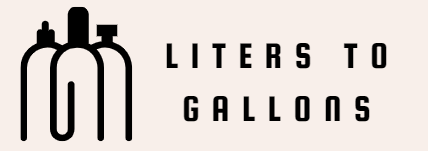Formula to convert 100 liters to gallons is to multiply 100 by 0.264172 (this is the value for 1 liter to gallon).
Convert 100 Liters to Gallons results
100 x 0.264172052 = 26.41720524
100 l = 26.42 gal
It is not at all complicated to convert 100 liters into gallons
Although it may seem like a trivial transformation, or perhaps even useless, things are not quite like that and the conversion of 100 liters into gallons is essential for the efficient management of the volume of liquids in different industrial sectors and practical applications.
How is it calculated?
One hundred liters is roughly equivalent to 26.4172 US gallons or 22.0197 imperial gallons.
This exact conversion is what helps you to evaluate and efficiently manage large quantities of liquids in various industrial processes and practical uses.
The formula you follow is: Gallons = Liters X 0.264
Applying the formula for 100 liters:
100 X 0.264 = 26.4172 gallons
Uses of conversion
In the oil and gas industry, conversion to gallons is used for efficient storage and transportation of fuels and other liquids.
In the chemical and pharmaceutical field, it is used for precise dosing of chemicals in production processes. In agriculture, it helps to accurately calculate the quantities of pesticides and fertilizers applied in crop treatments.
In the food industry, it facilitates the efficient production of drinks and food, ensuring compliance with strict quality and food safety standards.
In construction, conversion is essential for the management and distribution of liquid materials, such as paints and varnishes.
Various approaches
The efficiency in using the volume of 100 liters in various industries contributes to the reduction of operational costs and to the minimization of the impact on the environment by reducing waste and optimizing the consumption of resources.
Now you understand perfectly that the precise transformation of 100 liters into gallons is essential for the efficient management of volumes in various economic and industrial sectors.
This not only optimizes operational processes, but also contributes to the promotion of sustainability through the responsible use of natural resources and environmental protection in a global economy in continuous evolution.
To conclude the answer for 100 liters is twenty six point forty two gallons
